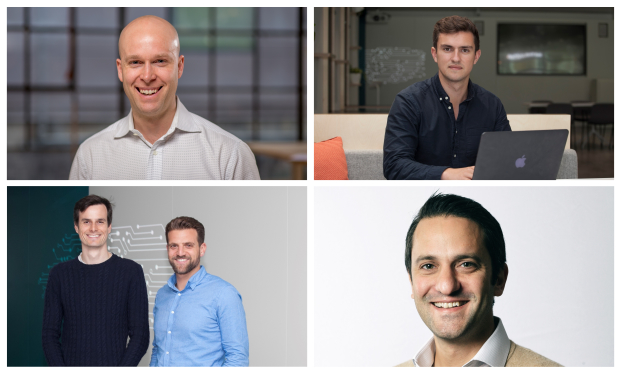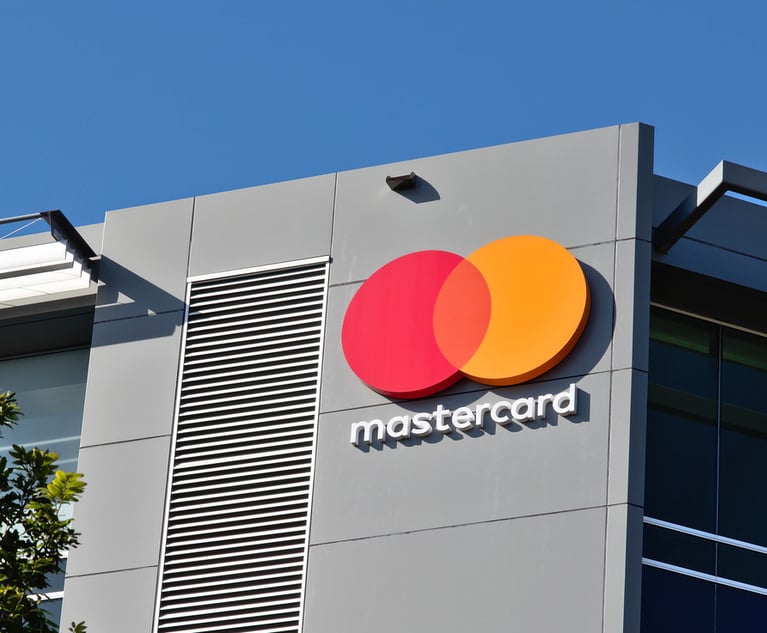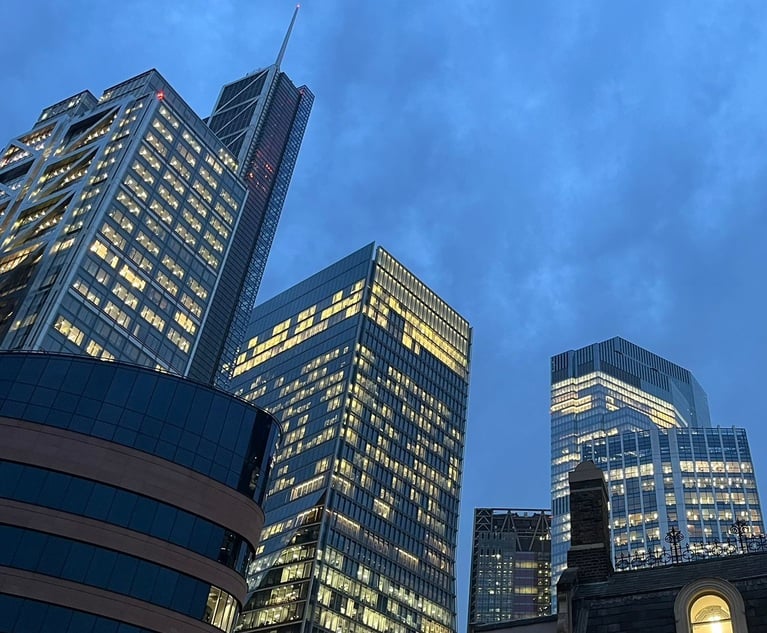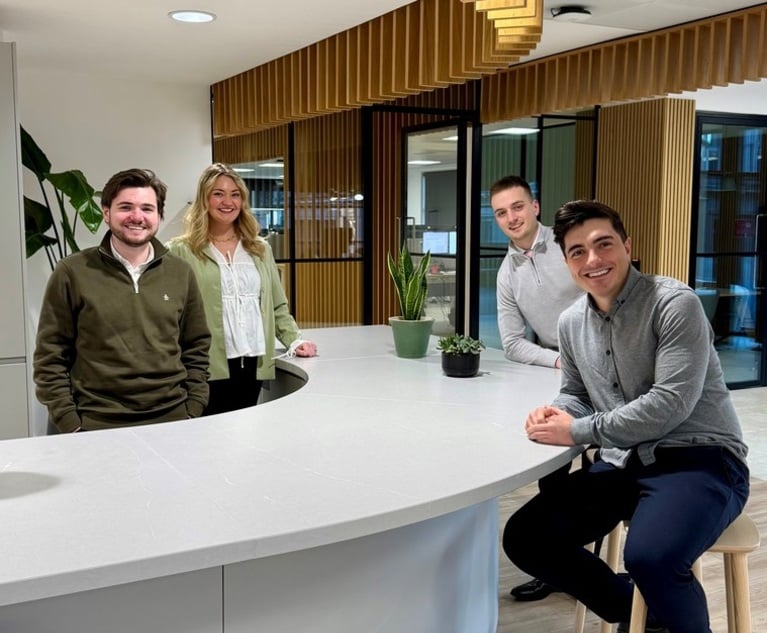From law to legaltech – the lawyers who got out of the partnership rat race
Legaltech founders on startup success and the moment they realised law firm life wasn't for them
January 30, 2019 at 06:56 AM
9 minute read
 Clockwise from top left: Noah Waisberg, Kira Systems; David Howorth, Avvoka; Nicholas d'Adhemar, Apperio; Anthony Seale (left) and Daniel Porus (right), Legatics
Clockwise from top left: Noah Waisberg, Kira Systems; David Howorth, Avvoka; Nicholas d'Adhemar, Apperio; Anthony Seale (left) and Daniel Porus (right), Legatics
The long slog to partnership is not for everyone, but the legaltech boom is offering some disillusioned but entrepreneurial associates an escape route.
Many of the legaltech companies that have sprung up in the last five years have been founded by former associates at top firms, and for these lawyers-turned-founders, the growth of legaltech has built a bridge from corporate law into entrepreneurship.
"In a law firm, it's a very strict single track," says Anthony Seale, a former Clifford Chance associate in London and now CEO of deal management platform Legatics. "As a lawyer, I thought I'd be in a position where I could have lots of different clients in lots of different industries, but I found that in reality you're very far away from the commercial side."
"I remember coming home after finishing work at 3am and thinking – do I want to be doing this for the rest of my life?"
On the other side of the world, Daniel Porus, a solicitor at top New Zealand firm Russell McVeagh, was running into similar frustrations: "One of the first deals I worked on was a global demerger. On some days, I was working 16 hours a day inputting data. I thought if I stuck it out then I wouldn't have to do as much administrative work as a senior lawyer, but I increasingly became aware that even though there's more client engagement as a senior lawyer, a lot of the day is still largely administrative.
"I remember coming home in a taxi after finishing work at 3am and thinking – do I really want to be doing this for the rest of my life?"
Porus is now head of business development at Legatics. He left New Zealand to do an MBA at the Cambridge Judge Business School and while there, was introduced by career advisers to a British legal AI company borne out of research at the university – Luminance.
At that point, Luminance had secured investment from magic circle firm Slaughter and May, and was a few months from its $10m series-A round – a substantial figure for a legaltech business, even now.
"Through following Luminance, I became exposed to other companies in the space, like ThoughtRiver. I started meeting with the founders and in that process I became really excited about it," Porus explains.
He met Seale shortly after through an ad on jobsite Escape The City.
"What I think a lot of lawyers find a bit of a bind is that – in one sense you're incredibly experienced as a lawyer, and then incredibly inexperienced at anything else," says Seale.
"The natural shift out of private practice is to go in-house. I have a few friends who did a bit more of a jump, into management consulting or used another degree. But it's incredibly hard to make a leap elsewhere."
Rewind to New York in 2010, and another future tech founder was leaving law.
"I knew it wasn't what I felt like doing for the rest of my life," says Noah Waisberg, a former Weil Gotshal & Manges M&A associate who, last September, raised $50m in venture capital for the machine-learning company he co-founded – Kira Systems.
"For me it feels like a better place to be in, having lawyers pull an all-nighter for you"
"I looked at the most senior partners and thought, even though they were impressive in a lot of ways, that's where I'll be even if everything goes right. It wasn't really what I desired."
Kira now has more than 120 employees and counts Allen & Overy, Clifford Chance, DLA Piper, Freshfields and other businesses such as Deloitte among its customers.
For Waisberg, part of the motivation to leave law was to take a seat on the other side of the table: "As a corporate lawyer I was helping people solve their problems and working exceptionally hard to do so – pulling all-nighters to help a client. For me it feels like a better place to be in, having lawyers pull an all-nighter for you."
He also didn't think law firms with their billable-hour model were great businesses: "Fundamentally there's some leverage, but not much. The way you make more money is that you bill more hours. With software, you're building one thing and then selling it – it's a much better business."
The leap out of law was only possible because of new gaps in the market created by advancements in technologies such as machine learning. The founders were well aware of both the inefficiencies in law firms, and the increasing modernisation of other industries.
Porus from Legatics recalls "watching how other businesses were being disrupted by technology", and being "unable to understand how it wasn't happening in law".
Nicholas d'Adhemar is the founder and CEO of Apperio – a platform for in-house lawyers to track their work in progress and legal spend. In a previous life, he spent four years as an energy associate at CMS in London. Like Waisberg, he found himself "much more interested" in what clients were doing: "I realised really early on that I didn't want to become a partner, I was just thinking how I can get into a commercial role."
He moved in-house at an oil and gas company but still found himself dissatisfied with legal work, so left the company to do an MBA through INSEAD business school: "Looking back though, that experience was incredibly useful, although I didn't realise it at the time. I got fully exposed to the client side and the frustrations they face."
D'Adhemar moved on from legal work altogether after his MBA and became an investment manager at a private equity firm. In his new role, "legal was a number in a spreadsheet", according to D'Adhemar, and, "turned out to be one of the biggest problem areas".
"The unpredictability of legal fees caused an issue in almost every deal. Every single time we'd agree a quote, get the deal done through all the twists and turns, and then a few months later an invoice would roll in that was twice as much as we'd agreed – once you'd mentally moved on to the next thing. The lawyer would say, well – I did a great job! That cycle repeats itself on almost every deal.
"It showed me that we really had no handle on legal fees, our biggest external spend. I just thought: why on earth is this happening? They should have all this data in the law firm, why isn't it being shared with us? That was the beginnings of Apperio."
Apperio completed its £7.5m series-A round last August, five years after d'Adhemar left his last job at the private equity firm. The company now has 50 in-house teams using its platform, including Network Rail, Monzo and Deliveroo. Apperio also counts Linklaters, Latham & Watkins, A&O and Clifford Chance among the 140 law firms signed up to the platform.
Of course, getting there wasn't easy. D'Adhemar recalls Apperio "running on fumes" before securing funding in 2018, which he chalks up as "classic tech startup stuff".
Waisberg initially thought it would take four months to build the first version of Kira in 2011, but after six months "realised that the software didn't work and wasn't even close to working".
"We weren't sure if it would take three months or 10 years to make it work at that point. That was not fun. I had a young kid and a wife at work, and had to dig deeper into my savings. Those were the hard years," he says.
But having seen it through, it's clear the founders have little regrets. As Waisberg says: "It's incredibly rewarding to build something, to have an idea for a product and to now see it exist.
"We've got Kira to the point where it catches things that good lawyers miss, and that's amazing. I can take work that I used to do as an associate and get it done in half the time, and at a higher quality. That's amazing."
"I'd rather go back to a law firm, cap in hand, saying it didn't work – rather than sitting at my desk not having given it a go"
Unlike the others, former Linklaters trainee David Howorth would have been quite happy to continue up the ladder to partnership, but saw an opportunity to take a gamble: "I'd much rather go back to a law firm two years later, cap in hand, saying it didn't work – rather than sitting there at my desk not having given it a go."
He is now a director of Avvoka, a contract automation startup that counts A&O, Baker McKenzie and Carlsberg as clients, among others, and is currently part of the second cohort of A&O's fuse tech incubator.
Howorth thinks there's "never been a better time to start a legaltech company".
"Although there's a lot of ideas in the market, I think we've only scratched the surface of what can be improved. There's a wealth of resources available now that weren't there five years ago, and an infinite amount of problems to be solved," he says.
Howorth is part of the newest crop of legal entrepreneurs and if he's right, then we could see many more lawyers leaving the beaten partnership track in 2019.
This content has been archived. It is available through our partners, LexisNexis® and Bloomberg Law.
To view this content, please continue to their sites.
Not a Lexis Subscriber?
Subscribe Now
Not a Bloomberg Law Subscriber?
Subscribe Now
NOT FOR REPRINT
© 2025 ALM Global, LLC, All Rights Reserved. Request academic re-use from www.copyright.com. All other uses, submit a request to [email protected]. For more information visit Asset & Logo Licensing.
You Might Like
View All
The Merricks-Mastercard Fallout: ‘Defendants Will Be Rubbing Their Hands with Glee’

‘Raises More Questions Than Answers’: Partners Puzzled by Leadership Change at UK Competition Regulator

Trending Stories
- 1Public Notices/Calendars
- 2Wednesday Newspaper
- 3Decision of the Day: Qui Tam Relators Do Not Plausibly Claim Firm Avoided Tax Obligations Through Visa Applications, Circuit Finds
- 4Judicial Ethics Opinion 24-116
- 5Big Law Firms Sheppard Mullin, Morgan Lewis and Baker Botts Add Partners in Houston
Who Got The Work
J. Brugh Lower of Gibbons has entered an appearance for industrial equipment supplier Devco Corporation in a pending trademark infringement lawsuit. The suit, accusing the defendant of selling knock-off Graco products, was filed Dec. 18 in New Jersey District Court by Rivkin Radler on behalf of Graco Inc. and Graco Minnesota. The case, assigned to U.S. District Judge Zahid N. Quraishi, is 3:24-cv-11294, Graco Inc. et al v. Devco Corporation.
Who Got The Work
Rebecca Maller-Stein and Kent A. Yalowitz of Arnold & Porter Kaye Scholer have entered their appearances for Hanaco Venture Capital and its executives, Lior Prosor and David Frankel, in a pending securities lawsuit. The action, filed on Dec. 24 in New York Southern District Court by Zell, Aron & Co. on behalf of Goldeneye Advisors, accuses the defendants of negligently and fraudulently managing the plaintiff's $1 million investment. The case, assigned to U.S. District Judge Vernon S. Broderick, is 1:24-cv-09918, Goldeneye Advisors, LLC v. Hanaco Venture Capital, Ltd. et al.
Who Got The Work
Attorneys from A&O Shearman has stepped in as defense counsel for Toronto-Dominion Bank and other defendants in a pending securities class action. The suit, filed Dec. 11 in New York Southern District Court by Bleichmar Fonti & Auld, accuses the defendants of concealing the bank's 'pervasive' deficiencies in regards to its compliance with the Bank Secrecy Act and the quality of its anti-money laundering controls. The case, assigned to U.S. District Judge Arun Subramanian, is 1:24-cv-09445, Gonzalez v. The Toronto-Dominion Bank et al.
Who Got The Work
Crown Castle International, a Pennsylvania company providing shared communications infrastructure, has turned to Luke D. Wolf of Gordon Rees Scully Mansukhani to fend off a pending breach-of-contract lawsuit. The court action, filed Nov. 25 in Michigan Eastern District Court by Hooper Hathaway PC on behalf of The Town Residences LLC, accuses Crown Castle of failing to transfer approximately $30,000 in utility payments from T-Mobile in breach of a roof-top lease and assignment agreement. The case, assigned to U.S. District Judge Susan K. Declercq, is 2:24-cv-13131, The Town Residences LLC v. T-Mobile US, Inc. et al.
Who Got The Work
Wilfred P. Coronato and Daniel M. Schwartz of McCarter & English have stepped in as defense counsel to Electrolux Home Products Inc. in a pending product liability lawsuit. The court action, filed Nov. 26 in New York Eastern District Court by Poulos Lopiccolo PC and Nagel Rice LLP on behalf of David Stern, alleges that the defendant's refrigerators’ drawers and shelving repeatedly break and fall apart within months after purchase. The case, assigned to U.S. District Judge Joan M. Azrack, is 2:24-cv-08204, Stern v. Electrolux Home Products, Inc.
Featured Firms
Law Offices of Gary Martin Hays & Associates, P.C.
(470) 294-1674
Law Offices of Mark E. Salomone
(857) 444-6468
Smith & Hassler
(713) 739-1250









